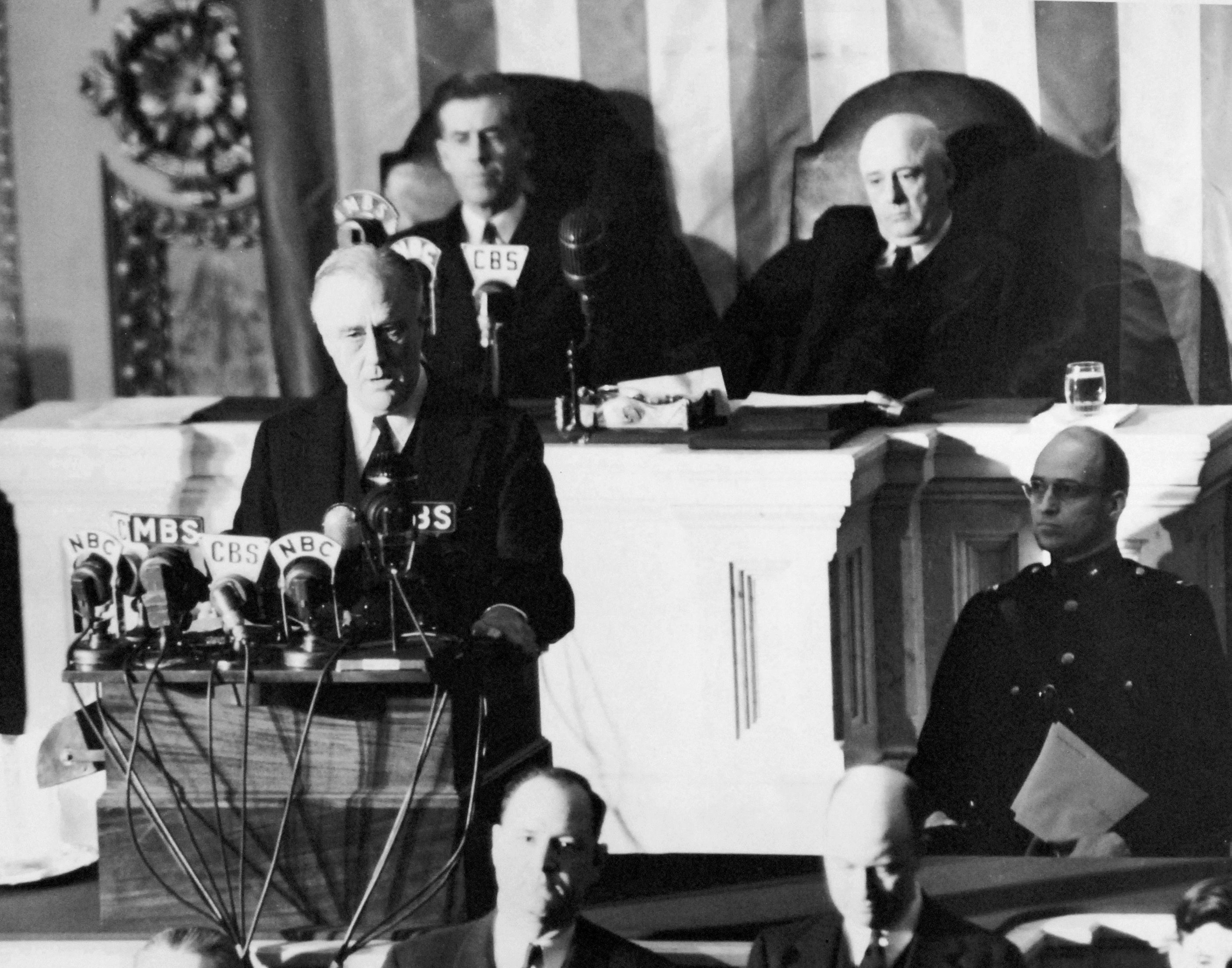As bad as the movie was, Pearl Harbor (2001) reminded the world about Japan's attack on Pearl Harbor, naval warfare mastermind Isoroku Yamamoto's involvement in the attack, and the U.S. response, especially the Doolittle Raid. With some misguided casting and lack of realism, it still featured important parts of the action and showed the attack through the eyes of many people present there, including seamen, pilots and nurses.It also featured Roosevelt giving his famous speech.
 |
| FDR delivering the speech to U.S. Congress |
If the shoe fits, wear it
I always thought Roosevelt's wording was very fitting and the speech was an inspiring call to arms (even if I never actually read the whole text). After years of non-interventionist (or even isolationist) politics, leaving its European allies without direct military support, United States was forced to join the global war, and that day - Day of Infamy - showed Americans how unprepared United States was.Indeed, it was infamy that United States has been caught "pants down". Its naval base in Hawaii had been attacked, after the remarkable failure of U.S. intelligence left it with no warning of the impending attack. It showed how future of naval warfare was aircraft carriers with their unique and flexible power projection capabilities, not battleships that were the mainstay of U.S. fleets. At the same time, the Mitsubishi A6M Zero fighter was to earn its reputation as the most capable naval fighter in the world.
 |
| Admiral Isoru Yamamoto, bringer of infamy |
Only a couple of years ago, I realized I had misinterpreted Roosevelt's words.
The other interpretation
As depicted in the film Pearl Harbor - and numerous other films and reenactments - Japanese admirals had masterminded a daring attack to Pearl Harbor Naval Base, using aircraft carriers and naval fighters to bring destruction to the U.S. Pacific fleet. It missed the U.S. aircraft carriers, which - very wisely - the planners considered the main target, because unlike Americans, they realized their potential. However, the strike itself was very successful.To recap, Imperial Japanese Navy launched a direct attack on United States Navy's base in Hawaii. Japan attempted to abide by the Hague Convention of 1907, by announcing its intentions - declaring war - before the attack, but due to delay caused by translation of the declaration from Japanese to English, war was declared a bit after the launch of the strike.
Apparently Roosevelt - and Americans still this day - thought it was an improper way to start a war. USA and Japan had been engaged in negotiations that were hoped to alleviate any need for war, and it seemed those negotiations had been a sham to make U.S. leadership uncertain about its true intentions, and as a continuation of that, an attack withoug declaring a war first was infamous.
 |
| Infamy in another context |
Deception is used in diplomacy and international relations - but to call Japanese tactics "infamy" is blatant exaggeration. Indeed, Japan had malicious intent and it threatened the whole Pacific region and was friends with Germany, but in the context of Second World War, its strike on a U.S. naval base was an exceptionally honest way of starting a war, as awkward as it sounds.
| Michael Bay's Pearl Harbor, the awkward reference frame of this post |
I still think the interpretation of "Day of Infamy" meaning "United States got caught pants down by Japan, and it is embarrassing" is more fitting in the context of WWII. However, it should not take away from the remembrance of December 7, 1941, which marked the start of war between USA and Japan, and as such is a day to be remembered, as yet another realization of war being inevitable, and the start of the last war between these countries.
No comments :
Post a Comment